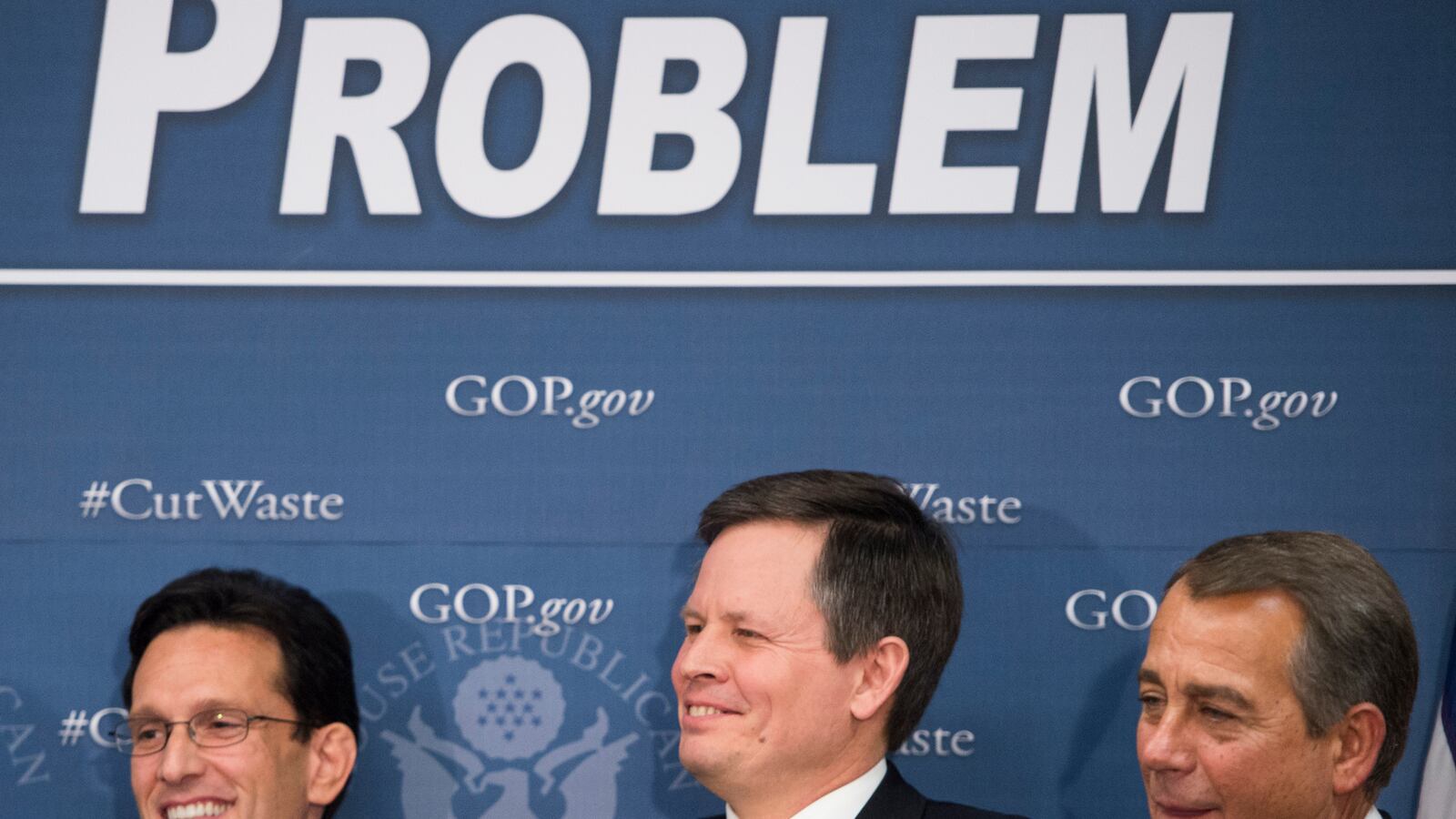Given what the Republican Party is and where America’s demographics are heading, it is unclear whether the Grand Old Party can successfully pivot to the center without jeopardizing its socially conservative evangelical base. Electoral competitiveness remains elusive for Republicans as singles and younger voters have migrated to the Democratic Party. The GOP is also shackled with the legacies of Iraq, Katrina and the crash of 2008 that have led many to view Republican competence as oxymoronic.

So at best, the party is barely treading water. A recent PPP poll shows both incumbent Senator Marco Rubio and former Governor Jeb Bush trailing Hillary Rodham Clinton by double digits—in Florida. Putting things in perspective, if the Republicans do not win Florida, they cannot re-take the White House. Indeed, with Florida, and Virginia — another state that Barack Obama carried twice—the once-Republican Solid South is starting to look like a blue-and-red checkerboard, with Democrats now owning some of the biggest squares.
Meanwhile, the Republican Party is far from agreed that it even has a problem. In fact, intra-party schisms were vividly displayed at the recent Conservative Political Action Conference, to which New Jersey’s popular governor Chris Christie was not invited. Instead, CPAC attendees heard Donald Trump do his usual rich guy-tough guy routine, and listened to Sarah Palin extol her husband’s and her own physical endowments. Okay for reality TV, perhaps, if not so much for serious national politics.
The Republican National Committee further added to the party’s woes by releasing its 100-page campaign autopsy—as RNC Chair Reince Priebus so memorably described it —acknowledging that “voters are increasingly rolling their eyes at what the Party represents” and lamenting the perception of the Republicans as the party of “stuffy old men.” The report also pointed to the party’s disconnect and competitiveness problems, the insularity of the party’s national agenda and Republican deficits in campaign technology, data gathering and voter targeting.
To top it all off, the 2013 cycle may bring additional Republican losses. In the Virginia governor’s race, former Democratic National Chairman Terry McAuliffe leads Republican state attorney general Ken Cuccinelli. Cuccinelli previously volunteered his belief that President Obama being born in Kenya did not “seem beyond the realm of possibility” and has equated abortion with slavery. For his part, McAuliffe profited from ties to disgraced former House Speaker Jim Wright, disgraced former House Democratic Whip Tony Coelho, and bankrupt telecommunications company Global Crossings. That is, they got the ignominy, and McAuliffe got the proceeds.
Increasingly blue New York has become a model for Democrats’ successful formula. Figures like Governor (and 2016 presidential possible) Andrew Cuomo and New York City Council Speaker and mayoral hopeful Christine Quinn have made themselves national figures with a socially liberal, business-friendly fusion of urban centrism and identity politics. It remains to be seen if this is a roadmap to victory in the rest of America, but their success is unquestionably an indicator of the hurdles that Republicans face, linked as closely as they are, to anti-gay-marriage dead-enders, as they attempt to play political catch-up.
Although the elections of Quinn and McAuliffe are hardly forgone conclusions, their message of accommodating both business and social realities is getting both candidates more than just a second look. And yes, both are fraught with the baggage of crony capitalism. However, in the aftermath of Dick Cheney, Halliburton and Iraq, Barack Obama, Comcast and Solyndra, business working hand-in-glove with government may be the new normal. And of course, some might argue that business hands and governmental gloves have been close since the founding of the Republic.
Last, in the upcoming special election for South Carolina’s 1st Congressional District, Elizabeth Colbert Bush, a Democrat, holds a narrow lead over former South Carolina Governor Mark Sanford, a Republican. Just months ago, that district reelected Republican Tim Scott – who has since been appointed to the Senate seat vacated by Jim DeMint – by better than three-to-two, and went for Romney by a clear margin.
Not surprisingly, pragmatism has greater appeal to political independents and moderates than to Republicans. Thus, the questions that the Republican Party must answer are how much and how soon is it willing to yield on its professed principles for the sake of victory; when does political disagreement cease to be branded as heresy by the party faithful, and what the party will actually gain if it does yield. Answeing those questions may not be quick or tidy in light of the currents of region, religion, race and class that define and buffet the party. In Britain, Conservative Prime Minister won passage of an attempt to legalize same-sex-marriage in the House of Commons, but lost half of his own party in the process.
Unlike the Democrats, the Republicans have to balance the social moderation of segments of their donor base with the expectations and wishes of their actual voters. High-end GOP contributors may live in the New York tri-state area, but since 1992 New York, New Jersey and Connecticut have each voted in Democratic lock-step. As the crow flies, New York is hundreds of miles from Mississippi. In contrast, wealthier Democrats live in close proximity to urban America and accommodation is the norm, not the exception.
Republicans here have their work cut-out, but there is always the possibility that the Democrats will overplay their hand. Already, the Harvard Crimson lauded Kentucky Senator Rand Paul for his 13 hour filibuster against the Obama administration’s drone policy, quoting Patrick Henry in praise of government transparency: “The liberties of a people never were, nor ever will be, secure, when the transactions of their rulers may be concealed from them.”
This just may be the way for the Republicans to begin again.





